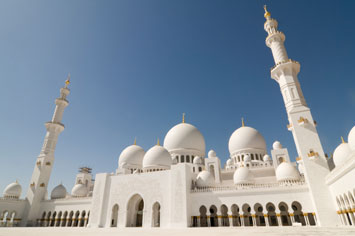Doing Business In - Middle East
Government

Five of the GCC (Gulf Cooperation Council) member countries, Kuwait, Bahrain, the UAE, Qatar and Oman, have written constitutions, while Saudi Arabia does not. In all six of the member countries supreme executive, legislative and judicial authority is vested in the central government and ultimately in the ruler and his family, although in the UAE authority is divided between the federal government and the seven constituent emirates, each with a ruler.
While all six countries have separate, substantially independent judicial systems, only in Kuwait and Bahrain is there a clear distinction between the legislative and executive branches of the government. The distinction is observed in the UAE, Qatar and Oman, but the legislatures there are accorded primarily a consultative role. Arbitration procedures are available and generally are respected and encouraged as a means of resolving disputes, although local procedures are normally preferred to foreign facilities. Sharia courts exist side by side with civil courts, but in practice the Sharia courts and the body of Sharia law is increasingly restricted to family matters, succession, property and to some extent torts and criminal law.
In commercial matters one way or another interest is normally recognized, although with limitations. With the re-emergence of Islamic finance, which for example is finding a role in project finance, the Sharia is having a new impact. There are monarchies, theocracies and democracies in the Middle East. Lebanon and Israel are democracies. Iran is a theocracy. Jordan is constitutional monarchy. Syria is republic with an elected legislative body. Saudi Arabia’s government is a monarchy governed by Islamic Sharia Law. Religion plays an important role in Southwest Asian governments. Countries like Iran based their systems of government on religion. Religion is important even in countries that don’t base their governments on religion.
While all six countries have separate, substantially independent judicial systems, only in Kuwait and Bahrain is there a clear distinction between the legislative and executive branches of the government. The distinction is observed in the UAE, Qatar and Oman, but the legislatures there are accorded primarily a consultative role. Arbitration procedures are available and generally are respected and encouraged as a means of resolving disputes, although local procedures are normally preferred to foreign facilities. Sharia courts exist side by side with civil courts, but in practice the Sharia courts and the body of Sharia law is increasingly restricted to family matters, succession, property and to some extent torts and criminal law.
In commercial matters one way or another interest is normally recognized, although with limitations. With the re-emergence of Islamic finance, which for example is finding a role in project finance, the Sharia is having a new impact. There are monarchies, theocracies and democracies in the Middle East. Lebanon and Israel are democracies. Iran is a theocracy. Jordan is constitutional monarchy. Syria is republic with an elected legislative body. Saudi Arabia’s government is a monarchy governed by Islamic Sharia Law. Religion plays an important role in Southwest Asian governments. Countries like Iran based their systems of government on religion. Religion is important even in countries that don’t base their governments on religion.
